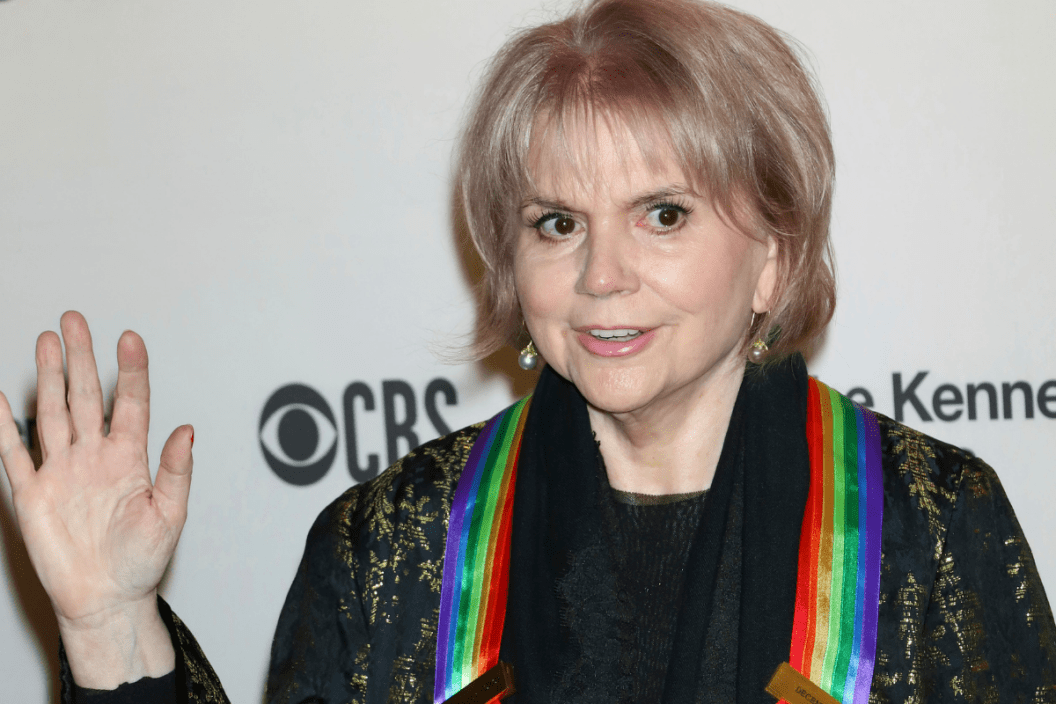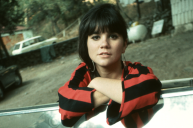Music legend Linda Ronstadt announced her retirement in 2011 due to a rare condition called progressive supranuclear palsy, a brain disorder similar to Parkinson's disease. In a recent interview with Closer, Ronstadt shared that she can no longer play music or sing, something she misses dearly.
"I can't play the guitar or piano, and I can't sing at all. I miss it and I miss knitting," Ronstadt said. "I can't do that either. I'm just lucky I can still read."
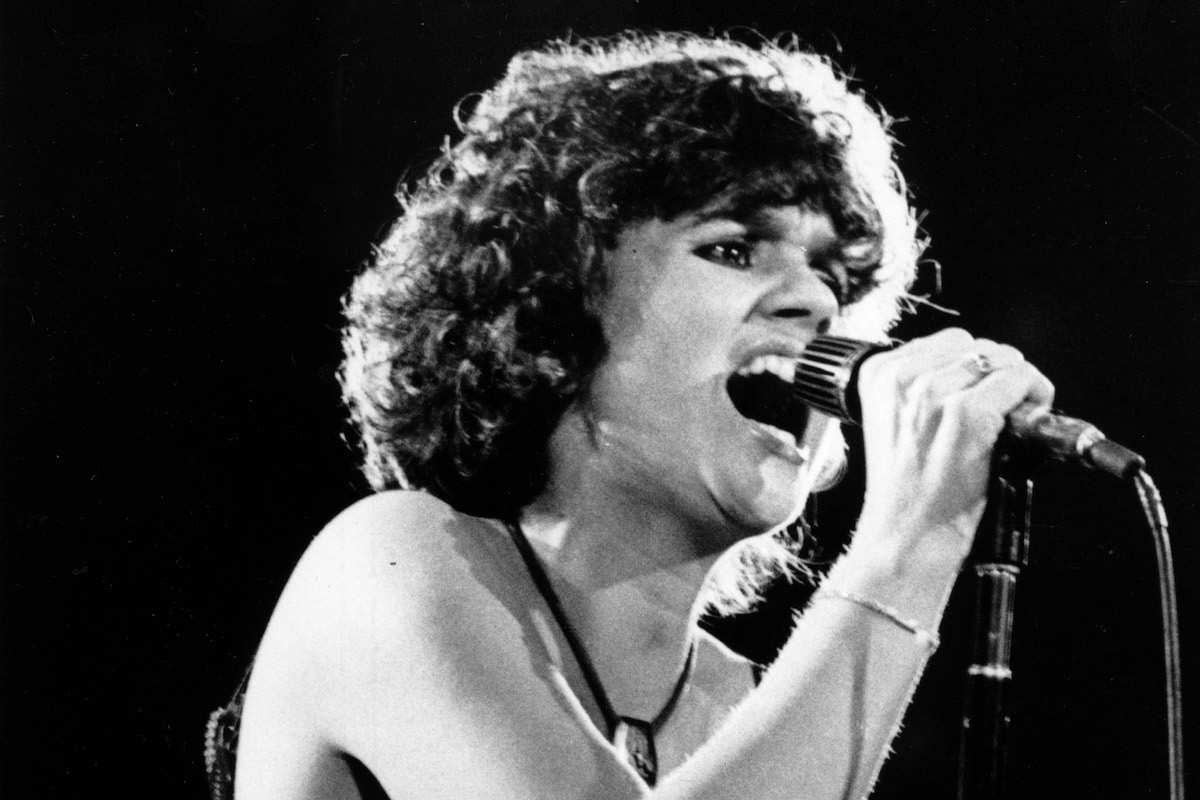
(AP Photo)
Ronstadt described her life as "fairly tranquil," adding that she enjoys watching operatic performances on YouTube.
"I have a lot of support and a lot of family and friends, so I am content," Ronstadt said. "YouTube has endless operatic performances, and I love opera. I also love ballet. I'm looking forward to the day when we can gather in a theater and see something great again."
She also added that while she doesn't listen to her own records, she's still an avid music listener, counting Billie Eilish and La Marisoul and her band La Santa Cecilia among her favorites.
Read More: Love The Eagles? You Can Thank Linda Ronstadt
Though she's no longer singing, Ronstadt is still using her voice in incredible ways. The Grammy-winning artist says she's currently working to help migrants who've been deported or refused entry into the country and families who've been separated at the border.
"I've been involved in helping people who are stuck in our horrible immigration system cross the border," Ronstadt says. "They're migrants who have been deported or migrants who have been refused entry, or families who were separated from their children. There's a huge number of children out there who can't be reconnected with their parents. They were cruelly taken away, and I'd like to help. It's a horrible thing to solve, but you take one case at a time and you deal with it."
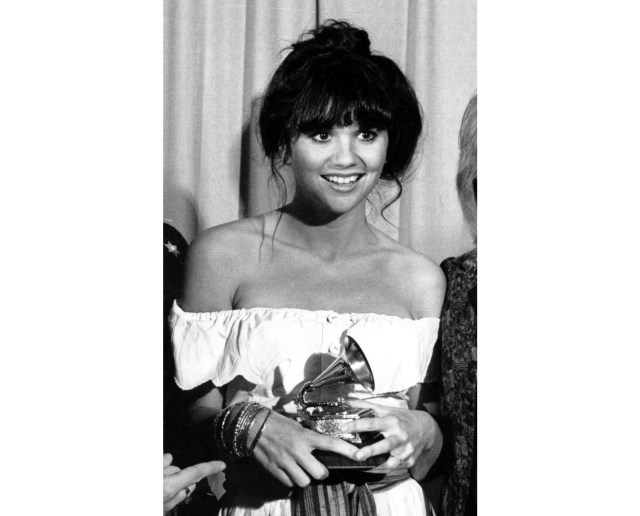
FILE - Singer Linda Ronstadt holds her award for best pop singer at the 19th Annual Grammy Awards in Los Angeles on Feb. 20, 1977. Now at 74, the 10-time Grammy winner and Rock and Roll Hall of Famer has been recognized as a "Legend" at the 33rd annual Hispanic Heritage Awards. (AP Photo, File)
Ronstadt, who was born in Tucson, Ariz., says she grew up traveling back and forth over the Mexican border.
"Arizona used to be a big part of Mexico, so there was Mexican culture there," Ronstadt says. "I was born 60 minutes from the Mexican border. In those days, the border was permeable. We would go back and forth and have lunch with friends, go to parties, dances, balls, baptisms and weddings. My father did business with all the ranchers in northern Mexico, so we knew everybody. Now they put a fence in that part of the desert, but the culture remains the same on both sides. It's really just an atrocity, and I'm so sorry to see it."
Linda Ronstadt's Legacy
Following her stint in the rock band The Stone Poneys, Ronstadt released her solo album Hand Sown...Home Grown in 1969. The powerhouse vocalist would go on to become one of the most successful rock stars of the 1970s. She even played a role in the creation of The Eagles when members of her backing band — Don Henley, Glenn Frey, Bernie Leadon and Randy Meisner — formed the now legendary rock band.
"They used to rehearse in my house, where I was living with J.D. [Souther], 'cause we had a bigger living room than they did. And I remember coming home one day and they had rehearsed 'Witchy Woman' and they had all the harmonies worked out, four-part harmonies," Ronstadt told Billboard. "It was fantastic. I knew it was gonna be a hit. You could just tell. They had really strong voices, really strong playing, really strong songwriting ideas and they had an extended pool of songwriters like Jack Tempchin and J.D. Souther and Jackson Browne. It was just an amazing time. There was no way they could miss with all that going for them."
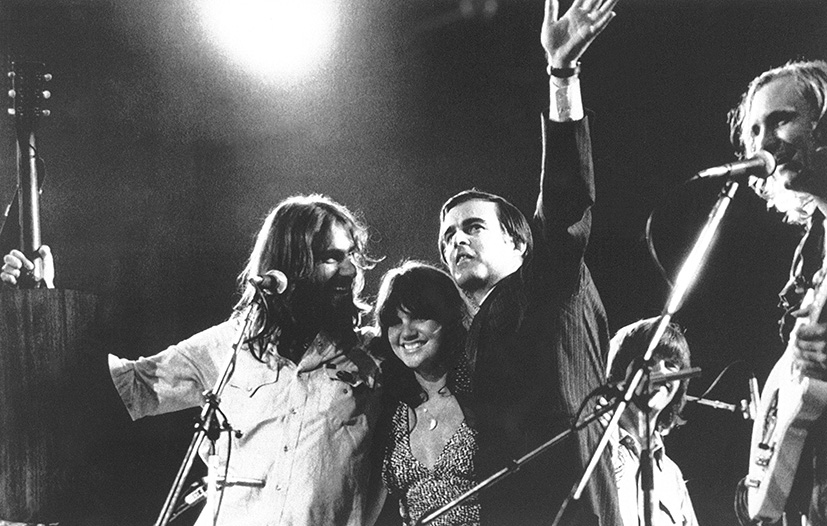
California Gov. Edmund Brown Jr. and singer Linda Ronstadt stand with members of the Eagles rock group, during concert in Maryland in 1976. Brown and Ms. Ronstadt left Friday for a trip to Africa. (AP Photo/Karin Vismara)
Over the course of her career, Ronstadt would help define the country-rock sound, drawing on her southwestern roots with "Silver Threads and Golden Needles" and a cover of Hank Williams' "I Can't Help it if I'm Still in Love With You," which earned Ronstadt her first Grammy Award for Best Country Vocal Performance/ Female.
Known for her ability to make any song her own, Ronstadt scored hits with "When Will I Be Loved" (originally recorded by The Everly Brothers), "Blue Bayou" (originally written and recorded by Roy Orbison), "Tumbling Dice" (Rolling Stones), "Poor Poor Pitiful Me" (Warren Zevon), "It's So Easy" (Buddy Holly) and more.
Ronstadt collaborated with friends Dolly Parton and Emmylou Harris on the Trio album, which featured the country hit "To Know Him is To Love Him." The three artists would team up again for Trio II, which was released in 1999.
In 1987, Ronstadt released Canciones de Mi Padre, an album of traditional Mexican folk songs.
Ronstadt was inducted into the Rock and Roll Hall of Fame in 2014 and honored at the Kennedy Center Honors gala in Washington, D.C. in 2019.
The documentary Linda Ronstadt: The Sound of My Voice chronicles Ronstadt's life and career.
Linda Ronstadt's Best Performances
'I Never Will Marry,' with Johnny Cash
'Blue Bayou'
'When Will I Be Loved'
'You're No Good'
'To Know Him is To Love Him,' With Dolly Parton and Emmylou Harris
Now Watch: Tina Turner Began Her Solo Career as a Country Singer
